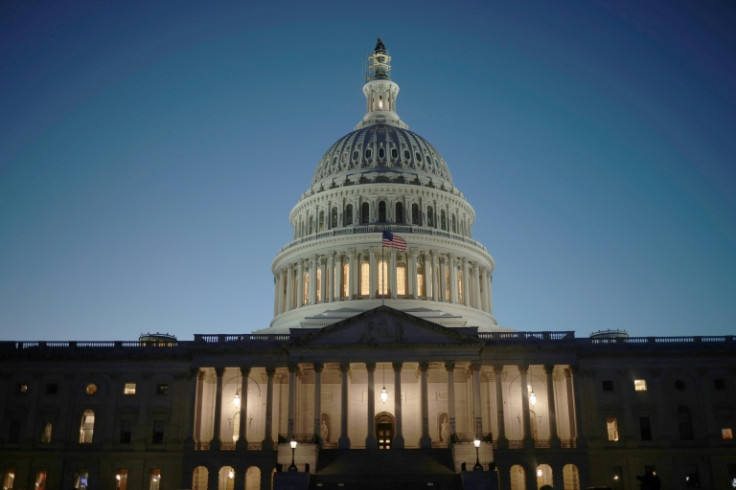
US senators were scrambling to vote by the end of Friday on a government funding package that would keep open several key departments threatened with closure this weekend after months of bitter wrangling failed to produce a 2024 budget.
The $460 billion package is expected to get broad support, but lawmakers were yet to lock in a timeline for holding a vote ahead of the midnight deadline, amid Republican infighting over spending cuts.
Five months into the fiscal year, Congress has yet to approve the 12 annual bills that make up the federal budget, with the lights due to go out across several departments and agencies this weekend.
A deal on the first six bills would allow the departments of agriculture, commerce, justice, science, environment, housing and transport to function until the end of the fiscal year, on September 30.
Some of the most contentious battles -- over the bills funding defense, labor, health and homeland security -- have been put off for a second package that needs to reach President Joe Biden's desk by March 22.
A partial weekend shutdown could threaten an array of government functions, including food inspections, veterans' benefits or scientific research -- although in reality federal funding rules allow a few hours' grace and a brief lapse would not spark any immediate closures.
The first package had a relatively smooth path through the House on Wednesday, although figures on the Republican right voiced disappointment that it failed to address several of the party's policy priorities.
The agreement adds an extra $1 billion for a federal nutritional program for low-income mothers and their babies, a key Democratic funding priority, increases rental assistance and boosts spending on veterans.
There are cuts of up to 10 percent for agencies regularly in Republican crosshairs, including the FBI, the Environmental Protection Agency (EPA) and the Bureau of Alcohol, Tobacco, Firearms and Explosives (ATF).
"This legislation... imposes deep cuts to the EPA, ATF and FBI, which under the Biden administration have threatened our freedoms and our economy, while it fully funds veterans' health care," Republican House Speaker Mike Johnson said, praising the bill.
Republican squabbling over amendments to the legislation and "earmarks" -- provisions circumventing the normal competition process to direct funds to lawmakers' pet projects -- are threatening the timing of the vote, however.
Conservatives were demanding that the leadership in both parties allow a vote on reinstating an earmark ban overturned by Democrats in 2021, effectively stripping more than $12 billion from the bill.
They highlighted examples of what they see as profligate spending, including $1 million for an environmental justice center in New York, $4 million for a waterfront walkway in New Jersey and $3.5 million for a Thanksgiving parade in Michigan.
The proposal is unpopular among more than a dozen Republicans with earmarks in the legislation, and the Senate's Democratic leader Chuck Schumer has rejected the move.
He announced that the Senate would seek to advance the package for final passage later Friday, although the conservatives could drag out the row into the weekend.
The shutdown would not technically kick in immediately and there would likely be no closure at all if there were a successful vote on Saturday.
The White House's Office of Management and Budget says a shutdown of agency operations within the first day of a funding gap can be postponed if it appears that funding is likely to be enacted that same day.
Senior Republican Susan Collins nevertheless told fellow senators on the floor of the chamber: "I would urge my colleagues to stop playing with fire here."








